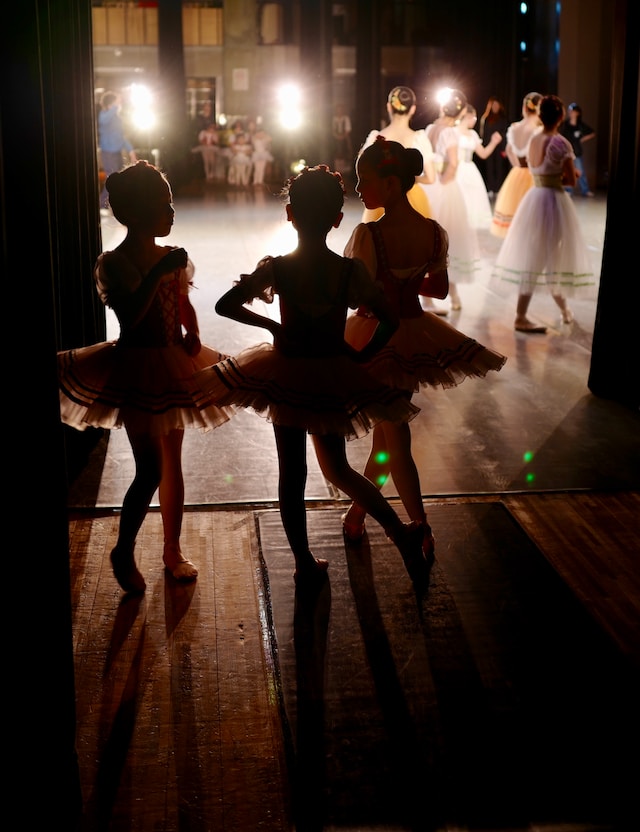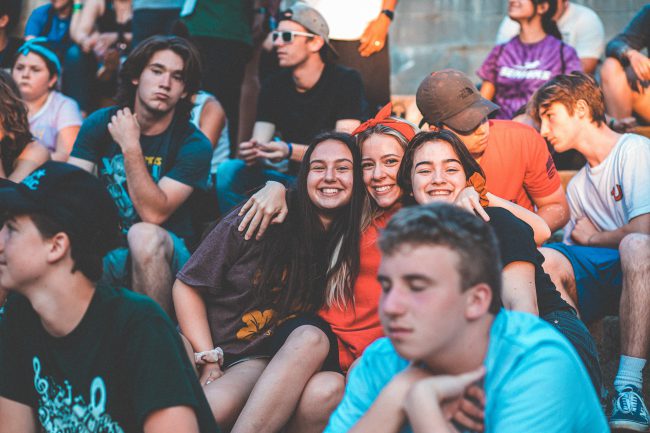All the signs are there: they’re belting showtunes in the car. They know Hamilton lyric by lyric. They’re reciting Shakespeare. Congratulations! You have a theatre kid. Now what? How do you nurture your child’s aptitude for theatre if you have no idea where to start? In this blog post, I’ll help walk you through some options and things to think about as your child starts their journey towards becoming a full-fledged drama kid.
Start With Community Theatres
Lots of communities, from tiny rural towns to big metropolitan areas, have at least one community theatre. The great thing about community theatre is that there are opportunities for people from all sorts of backgrounds and experience levels to get involved. Some offer classes and workshops, and some even do summer schools or academies. Scope out some organizations near you and look at what kind of shows they do and whether they have upcoming auditions or classes that might interest your child.
Speaking of Classes…
There are lots of ways to find classes designed for young performers. If you have a college nearby with a theatre program, see if they offer anything. Two-year colleges and colleges with theatre education programs often have summer performing arts camps that offer all kinds of experience for young performers, from individual workshops to full productions.

Go See Stuff!
One of the best ways to nurture someone’s appreciation for theatre is to see theatre…lots of theatre. Find local performing arts organizations and see as many productions as you can with your up-and-coming theatre kid. See good theatre. See bad theatre. See theatre that you might not otherwise see. Not only does this expose your child to a diverse array of theatre, there’s no better bonding opportunity than to see a show together and talk about it after. Lots of theatres offer discounted student rush tickets, so be sure to ask about that.
Look Beyond Your Borders
If traveling is in the cards, consider a trip to New York, Chicago, or London. Seeing a show on Broadway or the West End may seem financially cumbersome, but there are ways to get discounted tickets. Lots of popular shows also offer lotteries for a limited number of discount tickets. Wicked and Hamilton are just two of Broadway’s current mega-hits that have ticket lotteries.
The good news is, you don’t have to travel to the major theatre cities to see great theatre. There are plenty of thriving theatre markets all across the country. In the United States, Dallas, Washington, D.C., Seattle, Minneapolis, Orlando, and Baltimore are some examples of cities with high-level professional theatre.
Finally, don’t forget about digital options. Netflix, Hulu, YouTube, and Apple all have “pro-shots”- professionally shot recordings of Broadway productions. There’s also BroadwayHD, which I think of as the Netflix of theatre. It has hundreds of on-demand classical and contemporary productions plus live-streamed events.
The Essentials
As your kid starts doing theatre, there are some basic supplies you’ll want to have on hand to get them through rehearsals and performances:
- A good thermos or bottle for water.
- Comfortable clothes that are easy to move in. If your child is involved in a movement-intense class or show, the more breathable the better.
- If your child is taking dance classes or performing in a musical, they may need dance shoes. Be sure to check with the director or instructor for specifics and suggestions about the best places to buy those.
- Pencils/pens to write blocking and notes.
- Snacks, snacks, and more snacks. I’m partial to granola bars, peanut butter sandwiches, and almonds!
It may be a good idea to have on hand some makeup wipes and basic makeup like foundation, highlight, eyeliner, and lip color (even for boys). You may also want to look at a powder or a setting spray, especially for a movement-heavy show. NYX and Ulta’s Wannabe Fresh sprays are especially popular among theatre people I know. Ben Nye, the go-to company for stage makeup, also makes a setting spray for $10.

Headshots and Resumes and Agents, Oh My
If your kid is just barely getting started in theatre, headshots, resumes, and agents aren’t something you’ll need to worry about. But as they get more experience, you may want to start thinking about them. There are tons of resources about these topics, so I won’t get into them too deeply here. But if your child has bigger aspirations in theatre, you’ll at least want to have a resume and a headshot. Professional headshots can be pricey, so it’s a good idea to tailor your needs to where your child is in their theatre career and what their future goals are. If theatre is more of a hobby or a side endeavor, one good headshot is fine. But if college and/or the semi-professional or professional realm is in the cards, look into more professionally-done headshots. The best starting point is to ask around for local photographers. A note of advice - look for photographers who specialize in headshot photography and who know what makes for a good actor headshot.
You can find more tips and tricks for getting the best headshots in our blog post here!
What to Look For
Of course, you want to make sure that you’re sending your aspiring theatre kid to the right places. When it comes to classes or academies, check out the faculty and get a sense of their credentials and experience. Word of mouth is big in theatre, so ask around and do some web sleuthing to get some honest feedback on other peoples’ experiences. Some things you might be looking for:
- Whether classes/rehearsals seemed to run efficiently. Was a schedule provided in advance? Did rehearsals generally start and end on time?
- Level of parental/volunteer involvement. Are a few people running everything, or is there enough help so that no one person is doing too much? Is there a good level of buy-in from everyone involved?
- Culture. What is the general atmosphere like? Do alumni go on to other productions or college programs? Do faculty and staff cultivate a supportive environment free from cattiness and competition?
- Costs. Reasonable costs for classes and camps will vary based on a lot of factors, but if you’re expected to spend an inordinate amount of money on a lot of different things, you’re probably being taken advantage of. For reference, I look at tuition rates at some of the most popular performing arts summer camps in my area. The average for a two-week camp that culminated in a full production was about $300. Month-long camps with a full production at the end average around $475.
An eager theatre kid is a blank canvas - a very boisterous blank canvas - but the possibilities for what they could become and achieve are endless. It can seem a little overwhelming as a theatre kid parent, but don’t fret, there are tons of ways big and small to get your child involved!
Last Updated: July 04, 2023

Kevan Dunkelberg
Oklahoma-based drama teacher, actor and playwright